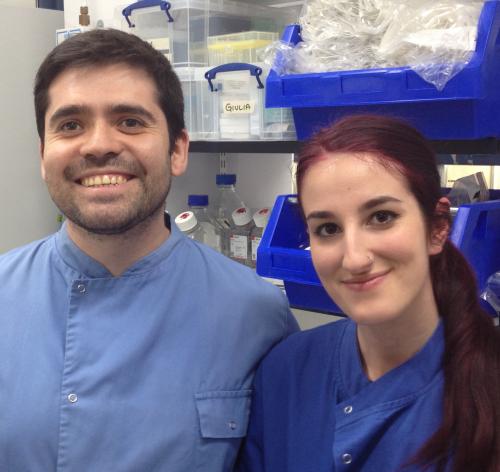
New research by Greg Findlay’s group in the MRC PPU has made progress in understanding the fundamentals of intellectual disability, a developmental disorder thought to affect 1-2% of the world’s population. The paper by Francisco Bustos, a postdoctoral investigator, and Anna Segarra-Fas, a PhD student in Greg’s lab, shows that genetic mutations found in intellectual disability patients impair the catalytic activity of an E3 ubiquitin ligase called RNF12. This prevents RNF12 from effectively destroying its target proteins, which may cause intellectual disability by disrupting development of neurons from stem cells.
“Although many genetic mutations have been shown to cause intellectual disability, how this disorder develops in patients is poorly understood” said Greg Findlay, the senior author on this publication. “Francisco and Anna’s findings shed significant new light on this area. They show that genetic mutations found in intellectual disability patients disrupt enzymatic function of the RNF12 protein, which in turn leads to abnormal development of stem cells into neurons. This may explain how this devastating disorder manifests itself, and could have implications for treatment of intellectual disability patients in future”.
Although the Findlay lab spearheaded the project, Ron Hay’s group in the School of Life Sciences and Helen Walden from the University of Glasgow were key collaborators on this paper. The work in the Findlay lab was supported by an MRC New Investigator Research Grant (MR/N000609/1).
You can read a copy of the paper here: Bustos et al (2018) RNF12 X-Linked Intellectual Disability Mutations Disrupt E3 Ligase Activity and Neural Differentiation.

